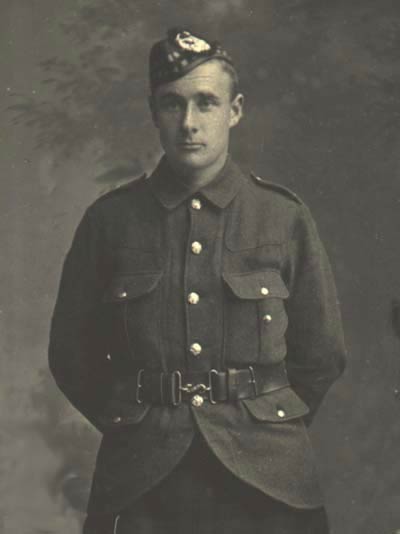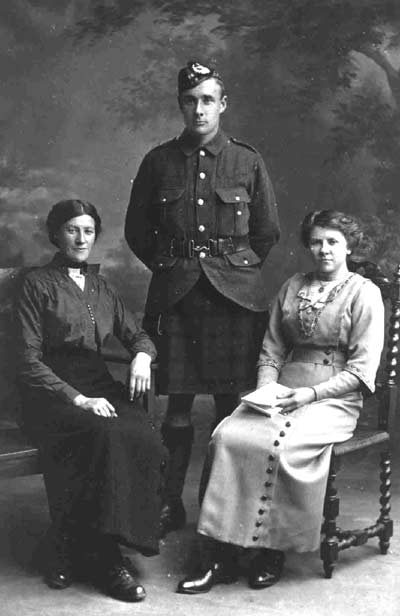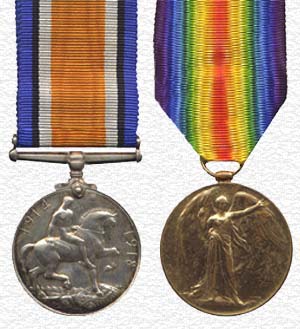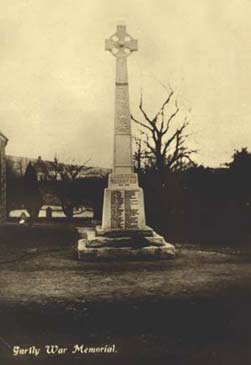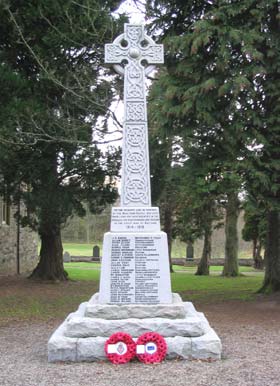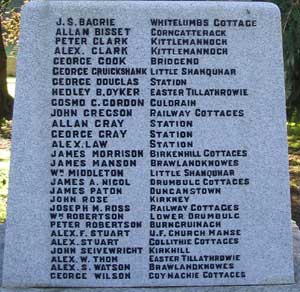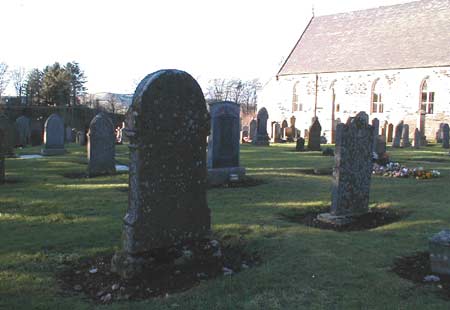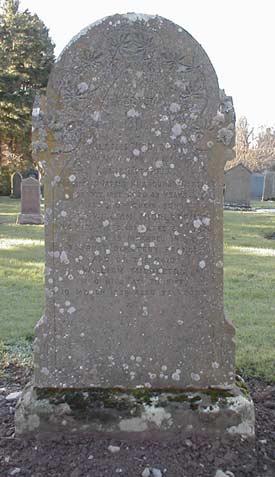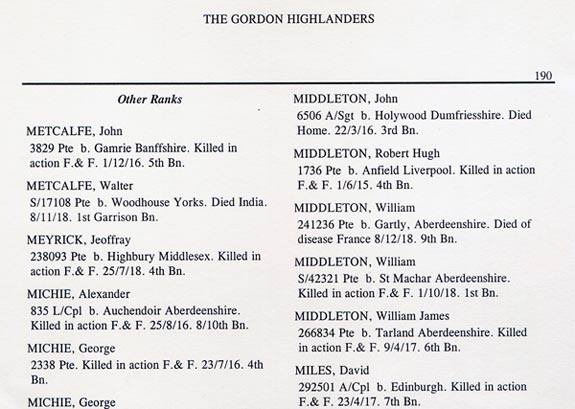|
Pte William Middleton, 9th Gordon Highlanders William Middleton was born on 1st June 1893 at Backburn, Gartly the only son of William and Ann Middleton. His father was a gamekeeper. He had two sisters. When he enlisted
in the 5th Battalion of the Gordon Highlanders at Aberdeen
he was working with The Great North of Scotland Railway at Udny Station. He was allocated service number 3672 and it is known he arrived in France, on or before, 27th June 1916. It may be he was involved in the Somme campaign from July to November, he was wounded during the capture of Beaumont Hamel in November 1916. He was later transfered to the 9th (Service) Battalion. His number became 231236 when renumbering took place in 1917. The 9th Gordons was a Pioneers Battalion and it's members would have been involved in general labouring work such as road repairs, construction, etc. in addition to infantry duties when required.
The Middleton
Family
From the Battalion
War Diaries it is known that in early December 1918 the battalion
was repairing roads and working on the Scheldt Canal to the south
of Lille. 241236 Middleton W, 'H' Coy is recorded as sick and listed
in Field Ambulance on 3rd December. Willie Middleton is buried in the
Allied Extension of Tournai Communal
Cemetery. The Belgian town of Tournai was occupied by the Germans
from the beginning of the war until it was liberated on 8th November
1918. Although the Cemetery was later extended by relocated burials
from a wide area round Tournai it is likely that No1 ACCS was located
near the town after the Armistice. Sick and injured soldiers would
have been nursed there and burials made in the local cemetery.
It is ironic that he served his country on the bloody battlefields of France and Flanders, where he had been twice wounded by the end of August 1917, but died as a result of the global Flu pandemic which ravaged Europe during the latter part of 1918 and 1919. His home parish did not escape either, a large number of it's inhabitants died of the Flu when it spread to Scotland. It was believed the virus was spread throughout the country by returning servicemen. It went on to cause the death of 100 million people world-wide. At the time of his death the family were in the croft of Midton of Cults, Kennethmont having moved there from Little Shanquhar, Gartly. As a consequence of being born and brought up in Gartly but residing in Kennethmont prior to his death William Middleton's name is recorded on both Gartly and Kennethmont War Memorials. It is also on recorded on the GNSR Memorial Roll in the concourse of Aberdeen Railway Station.
The Middleton Family headstone in the foreground, Gartly Kirkyard |
